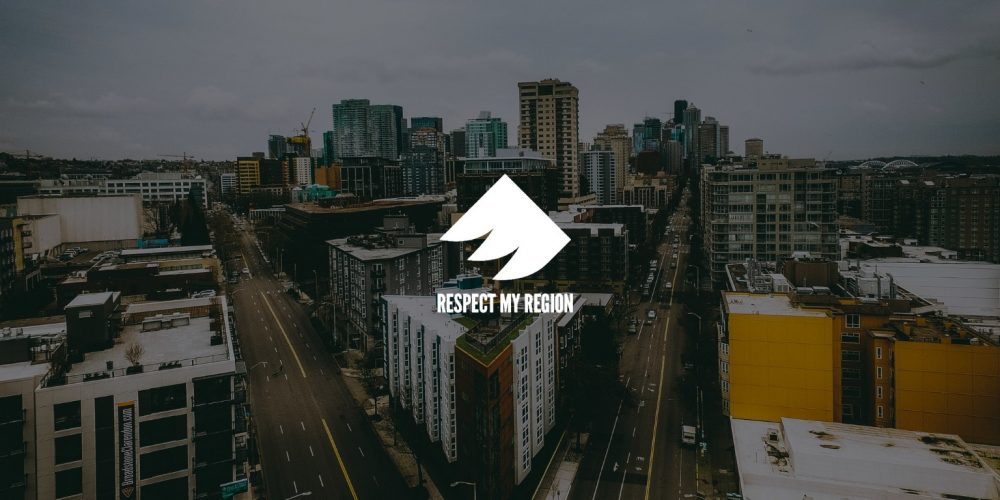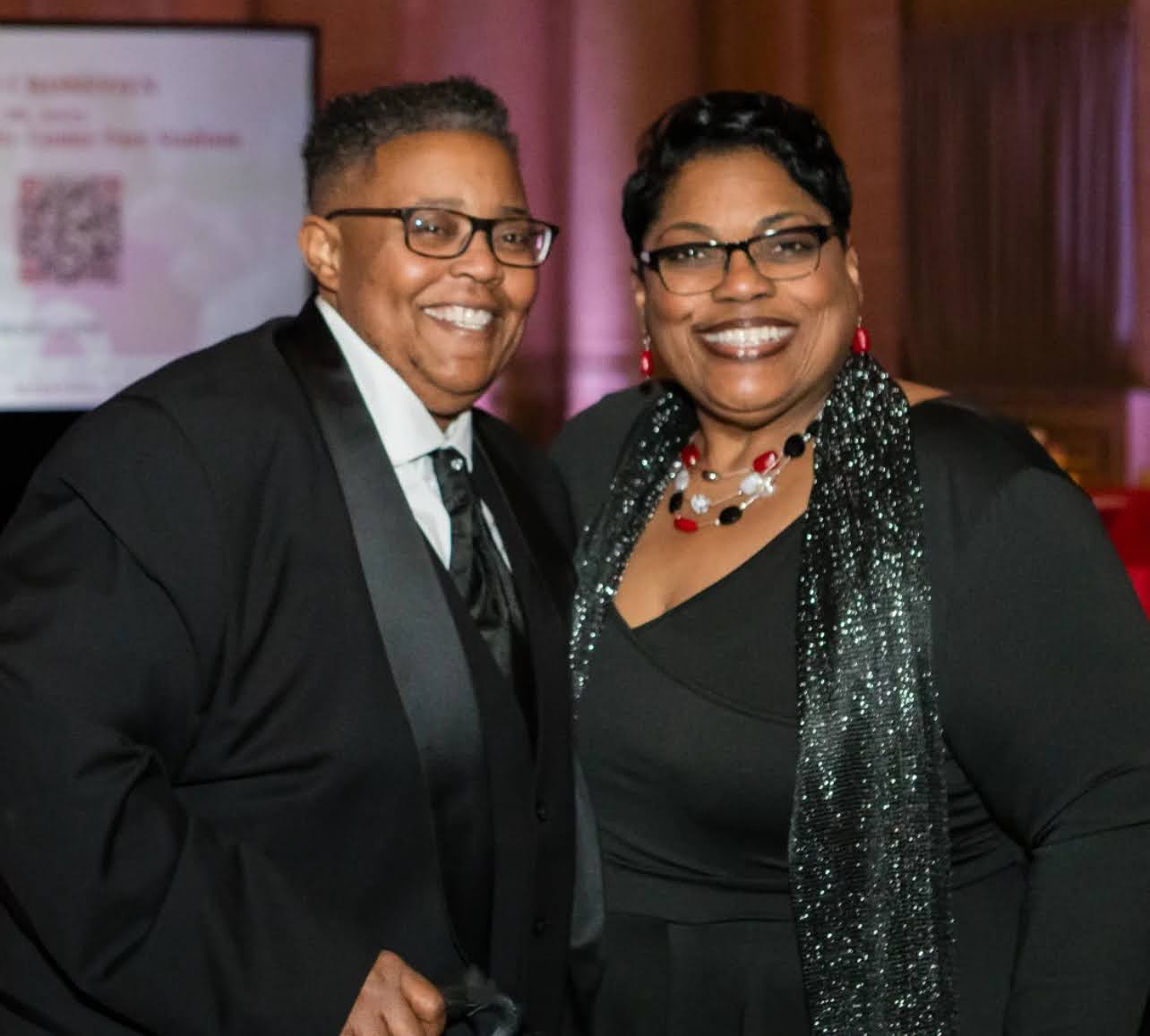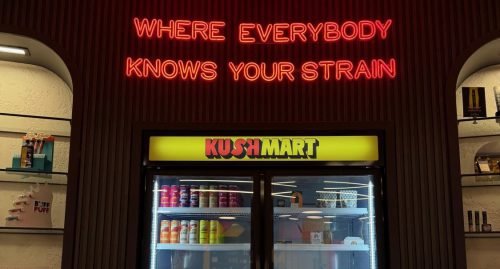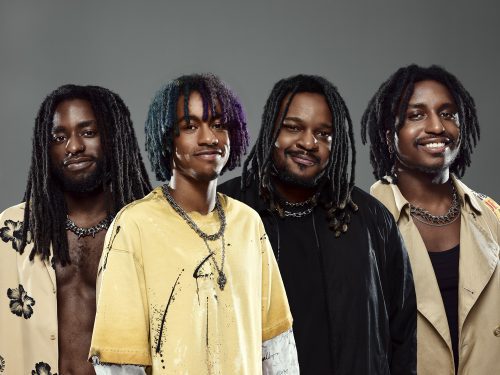Angela S. Weston, MBA, M.S., and Yolanda “The Herbal Trucker” Bennett saw the struggles patients face firsthand, such as medical challenges, misinformation, gatekeeping, and fear. Instead of waiting for the system to change, they founded the Georgia Medical Cannabis Society (GMCS) to educate, support, and advocate for those who deserve answers and options.
For many patients in the Peach State, navigating the world of medical cannabis is exhausting. The laws are confusing. Access to qualified healthcare providers is limited. Stigma still keeps too many people suffering in silence. They search for relief but often feel lost, unsure of where to turn or who to trust.
GMCS does more than educate. They give patients the facts, the resources, and the support they need to make informed choices about medical cannabis. They connect Georgians with compassionate, licensed professionals for evaluations and work to remove the stigma that still clouds cannabis use. Their mission is clear: Every patient deserves knowledge, access, and a community that stands with them.
In this interview, we sit down with Yolanda “The Herbal Trucker” Bennett to discuss the challenges patients face, the work GMCS is doing on the frontlines, and the impact of improving access to medical cannabis in Georgia. Let’s get started.
1. Can you share a story about a patient or community member whose life has been transformed through GMCS’s efforts?
Yolanda: At GMCS, our impact extends beyond individual stories—we focus on community-wide transformation through advocacy, education, and legislative engagement. As a grassroots organization, we work to create safe spaces for patients to access medical cannabis and understand their rights. Through social justice initiatives, civic engagement programs, and collaborations with national organizations like Americans for Safe Access (ASA) and the Minority Cannabis Business Association (MCBA), we contribute to broader reforms while supporting local communities. These efforts help Georgians navigate the complexities of the state’s cannabis laws and empower them through education.
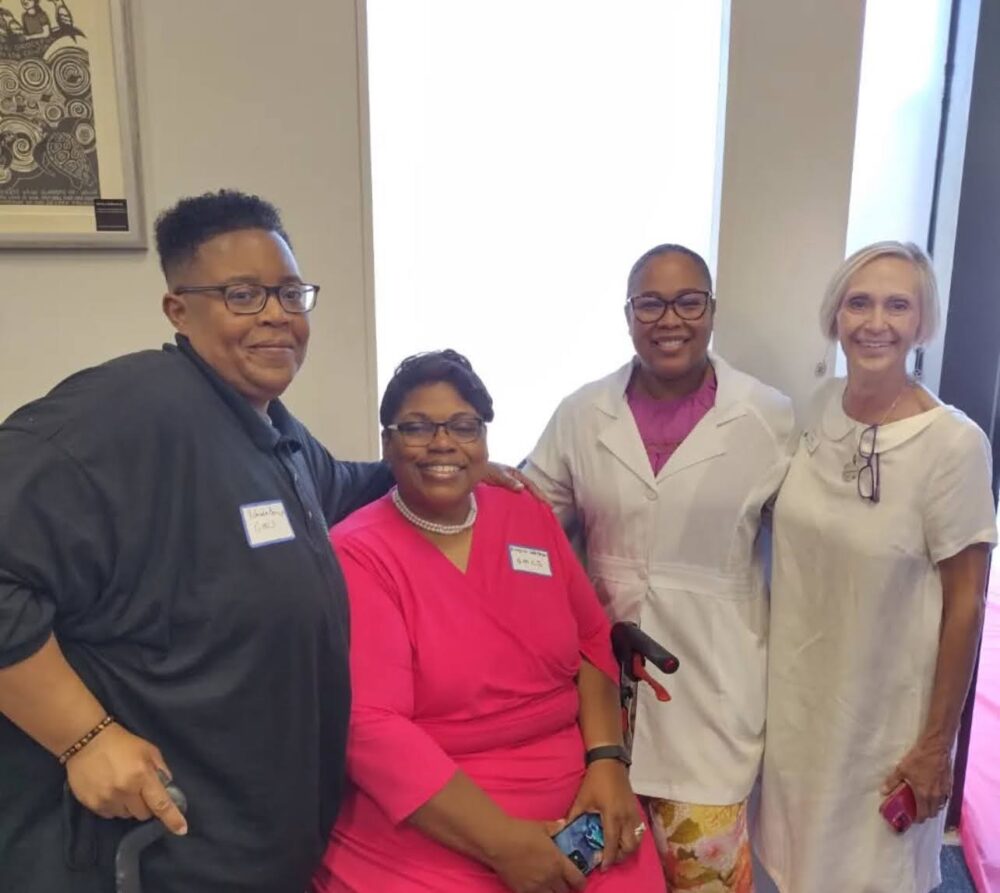
The impact of GMCS is about changing lives. While there are countless stories of individuals who have benefited from medical cannabis, GMCS focuses on creating long-term, systemic change that benefits entire communities.
2. What do you see as the most critical knowledge gap among patients, and how is GMCS addressing it?
Yolanda: “One of the biggest challenges patients face is understanding Georgia’s restrictive low-dose THC laws and the legal nuances surrounding medical cannabis access. Many are unaware of their rights, the application process, and how cannabis can be incorporated into their treatment plans. GMCS addresses these gaps through our:
- GMCS Masterclass, an educational podcast hosted by industry experts and special guests.
- Pressure Play Workshop, a hands-on civic engagement workshop series.
- Community events, with direct patient support at community events, ensuring everyone has access to accurate and up-to-date information.”
Many patients who qualify for medical cannabis don’t even realize they have options. A lack of awareness about the law, the process, and medical benefits often leaves people feeling discouraged before they even begin their journey.
3. How do you approach removing the stigma associated with cannabis use, especially in more conservative areas of Georgia?
Yolanda: “We tackle stigma through education, advocacy, and real-life stories. By amplifying the voices of patients, veterans, and community members, we shift the perception of cannabis from a taboo topic to a legitimate medical treatment. Our CannaShame Awareness Day highlights the harm caused by misinformation and outdated policies, while our collaborations with local leaders and clergy open important dialogues in communities where cannabis remains controversial. Platforms like the CannaShame Network and initiatives such as the Pressure Squad provide spaces for advocacy and public education to challenge stereotypes and promote cannabis as a tool for healing and wellness.”

Beyond legal barriers, stigma remains one of the greatest obstacles to cannabis access in Georgia. Many patients fear judgment from family, friends, and even healthcare providers. Changing public perception is just as critical as changing laws.
4. What role do partnerships like Fine Fettle play in enhancing community education and cannabis accessibility?
Yolanda: “Last year, we partnered with Fine Fettle as a Partner in Compassion, offering a 15% discount on medications at their dispensaries with the code GMCS15, making treatments more affordable for patients. However, some of our most impactful collaborations are with organizations like Veriheal, Bookstore Gallery, and Tetragram.
- Veriheal provides a $55 discount for patients obtaining their medical cannabis cards using the code GMCS55, reducing financial barriers to access.
- Bookstore Gallery serves as a vital community hub, hosting educational workshops such as the Pressure Play Workshop series and offering a safe space for holistic healing, advocacy, and organizing.
- Tetragram is a cannabis journaling app that allows patients to track their cannabis use, record symptoms, and share their experiences with others. This data helps patients make more informed decisions about their treatment while contributing valuable insights for medical cannabis research. Our collaboration with Tetragram supports GMCS’s commitment to using patient-driven data to advocate for better medical cannabis policies in Georgia.”
Expanding access to medical cannabis takes a network of committed partners. By working with dispensaries, advocacy groups, and patient-focused organizations, GMCS ensures that more Georgians can afford and access the treatment they need.
5. Are there other organizations or companies you’re working with to expand GMCS’s reach or resources?
Yolanda: As a grassroots organization, we continuously build relationships to expand our impact. We have developed strong collaborations with Veriheal for patient access, Bookstore Gallery for education and community organizing, and Tetragram for patient-driven data collection and research. Nationally, we are affiliated with Americans for Safe Access (ASA) and the Minority Cannabis Business Association (MCBA), working together on various projects to advance cannabis reform. We are also reaching out to additional community groups across Georgia to strengthen our presence and ensure that patients have the resources and support they need.
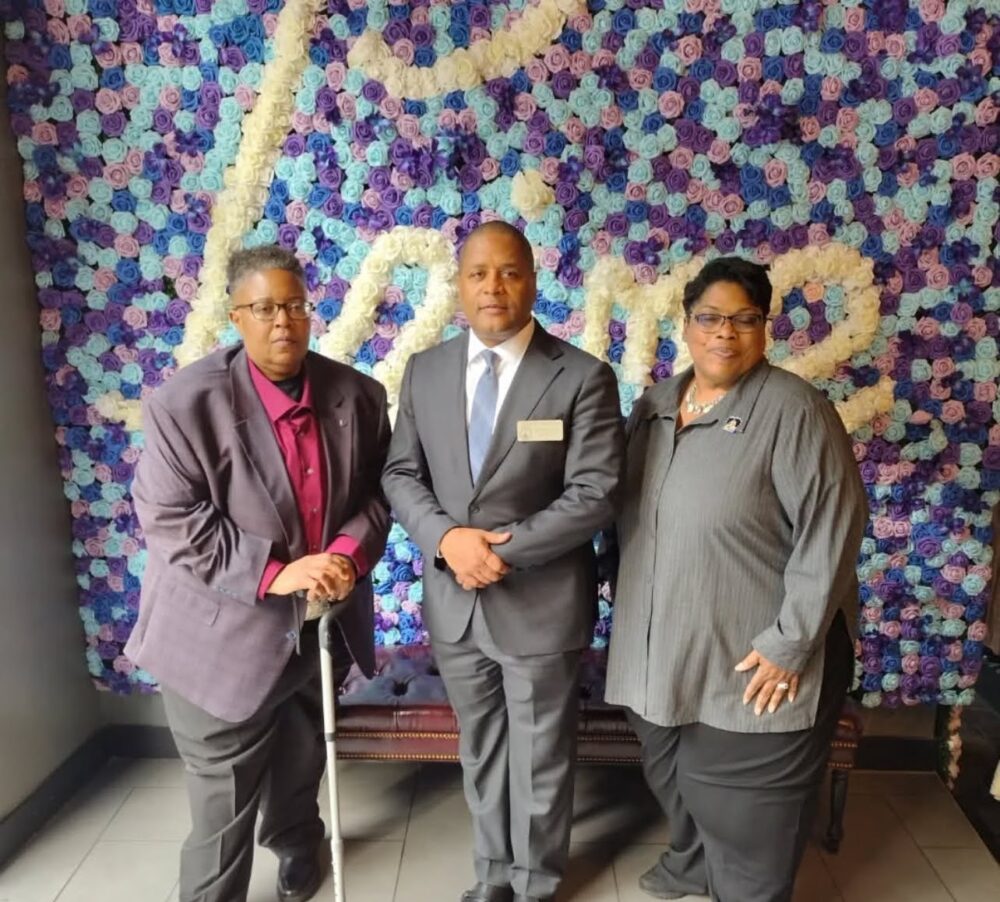
Collaboration is at the heart of GMCS’s mission. Building relationships with like-minded organizations strengthens advocacy efforts and helps more patients gain access to critical resources.
6. Where do you see GMCS in five years? What are the next big goals you’re working toward?
Yolanda: “In five years, GMCS aims to be at the forefront of cannabis advocacy in Georgia, driving legislative changes and expanding patient access. Our goals include growing the Pressure Squad beyond Georgia, expanding it into a worldwide movement that educates and equips individuals with the tools to advocate for cannabis reform in their own communities. We are also focused on strengthening the Compassion in Action Program to reach more underserved populations and advocating for a broader, more patient-centered medical cannabis program. Harmful legislation that stunts the evolution of the cannabis program remains a challenge, and GMCS is committed to working with lawmakers to push for reforms that ensure cannabis access is rooted in compassion, equity, and patient well-being.”
Looking ahead, GMCS envisions a future where medical cannabis is widely accessible, stigma is erased, and legislative barriers are eliminated. The work is far from over, and the next five years will be critical for expanding patient rights in Georgia.
7. How do you see Georgia’s medical cannabis program evolving, and what role do you hope GMCS will play in shaping its future?
Yolanda: We anticipate Georgia’s program evolving, but the pace will depend on advocacy efforts and patient demand. GMCS believes that hemp and cannabis can coexist, and we support businesses like the Bookstore Gallery that provide compliant, holistic healing environments. We work with legislators to present solutions for expanding the medical cannabis program and ensuring that it better serves patients while also fostering a fair and sustainable industry.
Legislative change is often slow, but with continued advocacy, progress is inevitable. GMCS remains dedicated to ensuring the state’s program expands in a way that prioritizes patients and public health.
8. Are there any upcoming initiatives or programs from GMCS that you’re particularly excited about?
Yolanda: We’re excited about several upcoming initiatives. The 2HW Summit (Holistic Health & Wellness Summit) on July 26, 2025, at the Fernbank Museum will bring together leaders in cannabis, holistic health, and social justice to educate and empower the community. We’re also expanding our Pressure Play Workshops to include mock legislative hearings at the Capitol, equipping more Georgians with the tools they need to advocate for meaningful cannabis reform.
As we look to the future, GMCS is doubling down on efforts to empower patients and advocates alike. New initiatives will focus on equipping communities with the tools and knowledge needed to push for meaningful reform.
The Future of the Georgia Medical Cannabis Society
Access to medical cannabis in Georgia remains an uphill battle, but organizations like GMCS are driving real change. By providing patient education, advocating for improved legislation, and offering direct support, they are empowering individuals to navigate the complex system and access the treatment they need.
As public perception shifts and more research highlights the benefits of medical cannabis, the conversation in Georgia is evolving. With the right policies and community efforts, more patients could finally receive the relief they’ve been fighting for.
